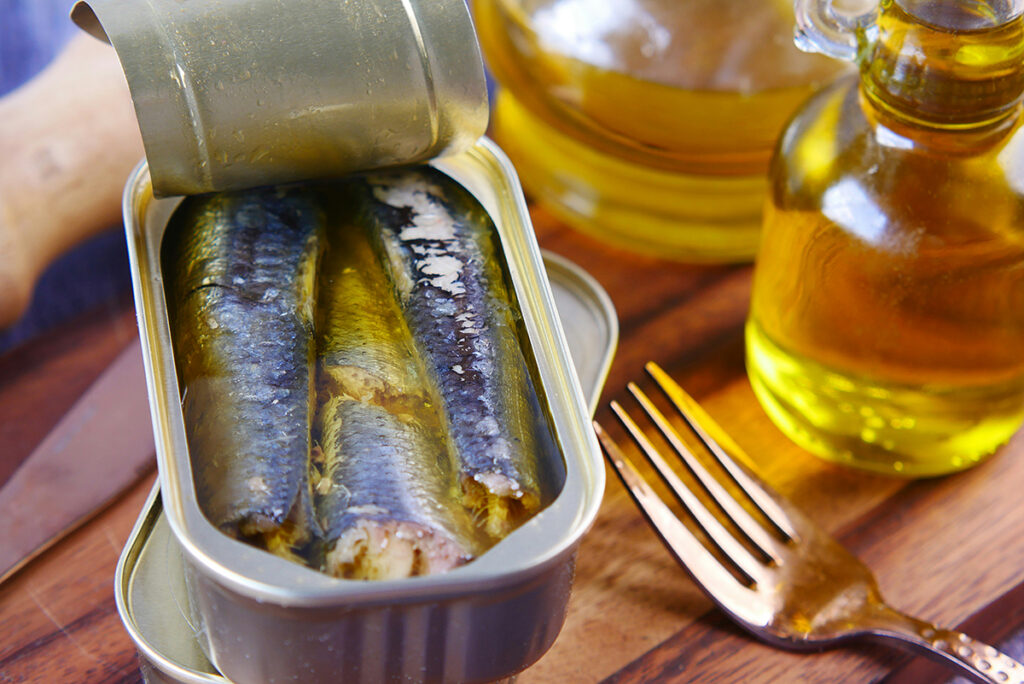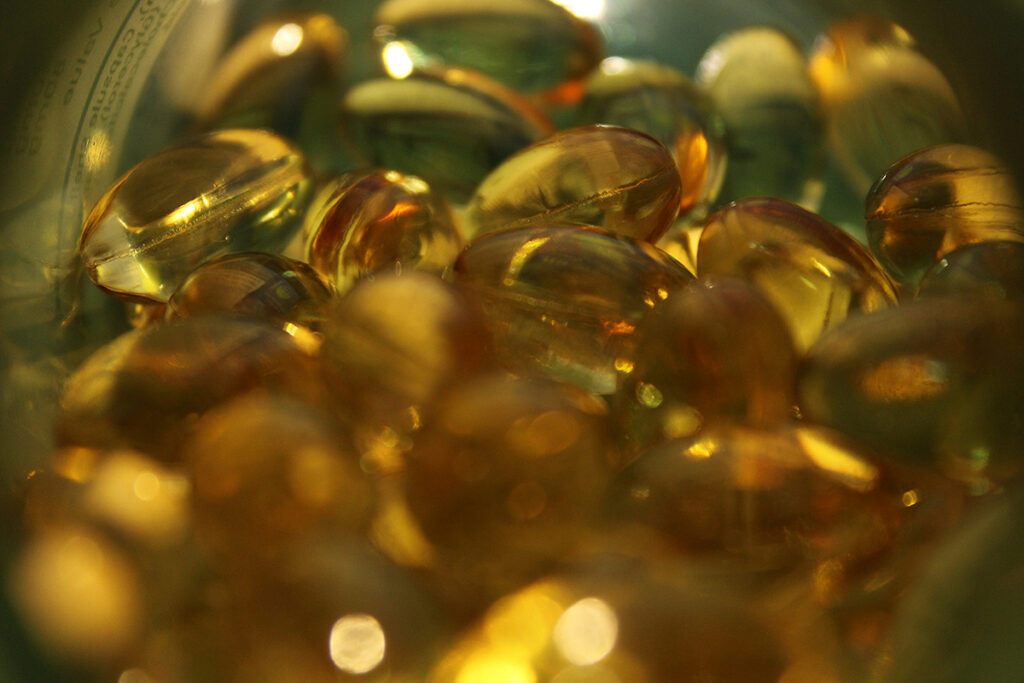Eating Habits that Contribute to Gout
Gout is a disease associated with the accumulation of uric acid crystals in the body’s tissues. Gout affects the joints and kidneys.
The consumption of liquors and beer is the most dangerous dietary habit for developing and aggravating gout. Moreover, in women, the relationship between beer and gout is more pronounced than in men. By 45, women who drink beer develop gout about 3 times more often than men with the same amount of beer consumed, as shown by a 25-year study conducted at the Universities of Alabama and Nebraska (USA). The participants are 20-45 years old, and the number of participants is 3,123.
Men who drink two to four beers (one drink is 0.33 liters) per week increase their risk of developing gout by 1.4 times compared to those who drink no more than one drink per week. Drinking more than two beers a day increases the risk by 2.6 times. These results were obtained from a 12-year study conducted at Harvard University (USA). The study involved 47,150 men aged 40 to 75 years.
The influence of beer on the development of gout is based on the high content of purines. The exchange of purines in the body ends with uric acid, which is deposited in the form of salts in the joints, which leads to gout.
Evidence-based medicine based on an analysis of 42,924 people showed that alcohol consumption, in terms of ethyl alcohol – more than 37 grams per day, increases the risk of gout by 2.7 times.
Red meat, poultry, seafood (fish and shellfish), and legumes – contribute to the development of gout. These products increase the concentration of uric acid in the blood and contribute to the deposition of its salts in the joints, muscles and other soft tissues.
An international group of scientists from King’s College London (Great Britain) and Peking University (China) investigated which foods rich in purines and what quantity contribute to the development and exacerbation of gout.
Scientists have found that every 10 grams of red meat, poultry and seafood consumed daily increases the risk of developing gout by 2.4%. And every 10 grams of legumes – by 1.1%.
The study involved 6,813 people, and the study duration was 20 years.
Eating Habits with No Effect on Gout Development
Vegetables and mushrooms rich in purines do not increase uric acid levels and do not contribute to the development of gout. The same Anglo-Chinese group of scientists obtained this result. Scientists analyzed vegetables rich in purines: spinach, cauliflower, nori, asparagus, celery, and coriander. The scientists also analyzed 7 types of mushrooms that are high in purines.
Eating Habits Lowering Uric Acid Level and Gout Risk
Milk and yogurt contribute to the reduction of uric acid in the blood serum, as shown by a study of 14,809 people, which lasted 6 years and was conducted at Harvard University (USA). Drinking milk one or more daily reduces uric acid levels by 25%, and the use of yogurt at least every other day – by 26%.
Vitamin C is useful for preventing and treating gout at a dosage of 500 mg/day for two months, as scientists from Johns Hopkins University (USA) demonstrated. These data were also confirmed by evidence-based medicine.
Cereals (refined grains) – reduce the risk of high uric acid levels in the blood serum. For every 10 grams of refined grains per day, the risk is reduced by 0.9%. These data were received by the already mentioned group of Anglo-Chinese scientists.
Coffee in large doses reduces the risk of gout in men by 59% (more than 6 cups per day) and in women by 57% (more than 4 cups per day). The data for women comes from a 26-year study conducted at the University of Boston (USA). Data for men were obtained from the University of Vancouver (Canada) for 12 years of study.
However, it is necessary to consider that coffee increases the risk of chronic kidney disease and contributes to fractures in women.
Eating Habits with Inconsistent Evidence Regarding The Risk of Developing Gout
Tea is a drink that gout patients should take with caution. For example, a study from the University of Mauritius shows that black tea reduces uric acid levels in men by 9.4% and in women by 7.1%. However, a study conducted at the National University of Singapore shows that people who drink green tea daily have uric acid levels elevated by 25.0 µmol/L compared to non-tea drinkers.
Conclusions
Gout is promoted by:
- alcohol, especially beer;
- red meat;
- poultry meat;
- seafood: fish and shellfish;
- legumes.
Reduce the risk of developing gout and relieve the symptoms of the disease:
- milk and yogurt;
- vitamin C;
- cereals (refined grain).
Coffee and tea should be used with caution. Coffee has adverse side effects, but tea has conflicting data.
Useful article, necessary information? Share it!
Someone will also find it useful and necessary:
References
- Serum urate and its relationship with alcoholic beverage intake in men and women: findings from the Coronary Artery Risk Development in Young Adults (CARDIA) cohort
- Alcohol intake and risk of incident gout in men: a prospective study
- Beer, Liquor, and Wine Consumption and Serum Uric Acid Level: The Third National Health and Nutrition Examination Survey
- A meta-analysis of alcohol consumption and the risk of gout
- The Association between Purine-Rich Food Intake and Hyperuricemia: A Cross-Sectional Study in Chinese Adult Residents
- Intake of purine-rich foods, protein, and dairy products and relationship to serum levels of uric acid: the Third National Health and Nutrition Examination Survey
- The Effects of Vitamin C Supplementation on Serum Concentrations of Uric Acid
- Effect of Oral Vitamin C Supplementation on Serum Uric Acid: A Meta-Analysis of Randomized Controlled Trials
- Coffee consumption and risk of incident gout in women: the Nurses’ Health Study
- Coffee Consumption and Risk of Incident Gout in Men
- Analgesic use, parents’ clan, and coffee intake are three independent risk factors of chronic kidney disease in middle and elderly-aged population: a community-based study
- Coffee consumption and risk of fractures: A systematic review and dose–response meta-analysis
- Black tea reduces uric acid and C-reactive protein levels in humans susceptible to cardiovascular diseases
- Serum Urate Levels and Consumption of Common Beverages and Alcohol Among Chinese in Singapore



